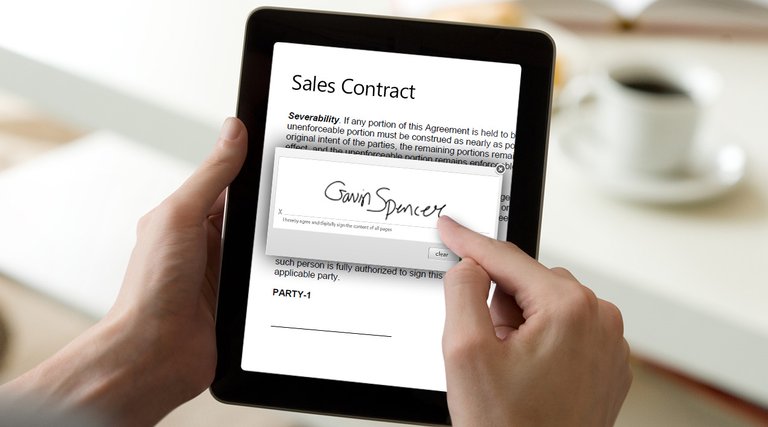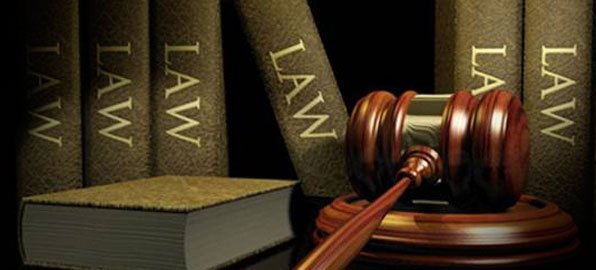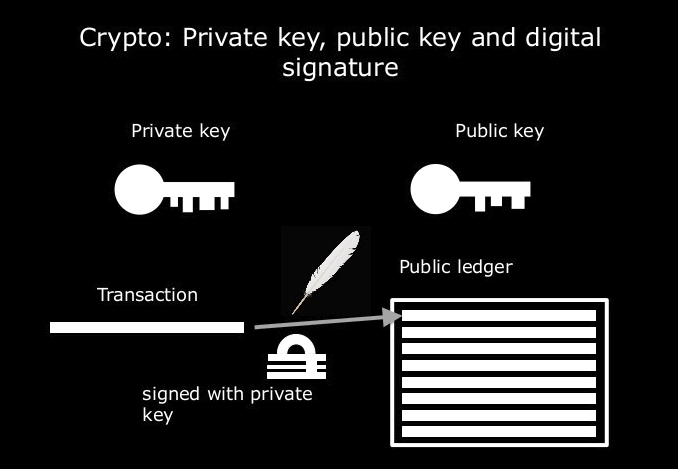More and more solid business cases are coming to the front with the rise of Blockchain technologies. One very good example of how Blockchain can transform the way we are used to doing things are Digital Signatures.
Most countries has by now passed a law on electronically signing of contractually signing documents. In today's fast moving world digital world, I am struggling to understand, why I still need to physically sign a document. The technology surely exists, to make a digital signature valid and legally acceptable. But still I need to sign manually for most things I receive.
The problem is not the technology, it is more about the process of signing the document and the worldwide adoption of a standard. There are any companies offering solutions to the highlighted problem, but we do not have an international widely accepted standard. Blockchain technology is the perfect underlying tech to make this a standard.

What is an electronic signature?
In South Africa we have the Electronic Communications and Transactions (ECT) Act of 2012. Most countries has similar acts. According to this act an electronic signature is:
any data attached to or logically associated with other data, which is intended to be a signature and has a relationship with the that data. This relationship can be any number of things, including a data signature residing in the same file, or data residing in a different file to which the original document points.
Content Source
What is an electronic signature in Laymen's terms?
Well, just as you normally sign any legally binding document, this is the electronic version of your signature. We all have manual signatures and while we are building digital personalities, we should have a digital version of this signature. In contradiction of our manual signature, our digital signature is not just a scan of our handwritten signature. Sure you can scan you signature digitally, but when it comes to electronically signing a document, we are looking more at the process of getting to the signed document rather than just attaching an image.
In generating a legally signed document, we have to adhere to certain conditions during the process.
What makes a document legally signed?
We need to be able to prove that the person had intend to sign the document.
We need to be able to prove that there is a relationship between the person signing the document and the document. In other words, we need to have some sort of audit trail that proves the person that signed the document is the actual person that signed the document.
The ECT Act specifically makes allowances for the legality of electronic signatures, and in fact the Supreme Court recently recognised an email signature as a valid electronic signature. This is because it meets the two most important criteria – there is an association or relationship between the document and the signature, and the person intended it to be a signature
Blockchain and digital signatures.
Blockchain technology, is taking away the requirement for us to trust anything as the Blockchain is trust-less and immutable. I have written an article earlier which explains why it is trust-less and immutable. You can read the article here.
A great example of how the signing of digital documents can work using Blockchain Technology is to look at Signatura Website ,
They follow the following high level process and all of this is built on Blockchain technology:
- Send a document to various parties for signaure
- The various parties sign the document.
- Notarise meaning that they ensure the document is fully signed, date of signature is captured in the Blockchain, and ensure the document is not changed after signature.
- Audit trail is available from a legal perspective.
EOS, seems like the perfect platform to build a digital signature solution which can be accepted as an international standard. But there is much more to creating a standard than just the technology. If there is anybody, which would like to work with us on a solution, please let me know.
One of these days, we will each have a digital version of ourselves and to go with that a digital signature which can be used to sign you legal documents in a compliant fashion. The world is becoming smaller and smaller and I am waiting for the day, when we have one world without any borders.
Happy Steeming!



@jacor - thanks for the interesting read. Why do you think EOS is most suitable for this kind of use over Ethereum?
Hi @amexperts, I am sure that it will work on Ethereum as well without any issues. In my opinion Ethereum, is by far the most used blockchain from a development perspective. One of the reasons for this is that it is the most adopted for developing solutions on.
I do however believe that EOS will eventually surpass Ethereum as it has learnt from Ethereum.
For example We had windows 95, and that was replaced by a better solution Windows 98, and we are now on a newer version of Windows as everybody learns and improves.
I believe that Dan Larimer's (@dantheman) vision of the blockchain is yet to be matched. If you look at his history in building Bitshares, Graphene, Bitshares 2, Steemit and now EOS I believe EOS will be in a different league.
I think the digital signature can combine to biometric method to identification so that it is more user-friendly. So this method is trendy now. But there is a concern that the database containing user's biometric information need to be built, which is a concern about the privacy....
Thanks for the comment @tinytaruen. The privacy debate will always be an issue, doesn't matter the technology driving it. For me the only solution to this is decentralization and to ensure that there is no one entity that controls the data. Cryptographic solutions can encrypt the bio data of individuals which will ensure it is not publicly available and the blockchain can decentralize the solution to ensure no one company can manipulate and misuse the data
Great post, digital signatures are still not implemented as they should indeed. The country I live in has a government issued online ID, with which you can luckily sign a lot of stuff online, but still lacks the safety/proof-ability as you described here.
Thanks for the @chessmasterhex, this is very interesting information. I would love to discuss the online id in more detail. From which country are you If I may ask? Is the online identity decentralized or centrally managed?
I am from the Netherlands, and the digital id is called DigiD. It is government issued but it is not issued by default. I have been checking the site and I can't find how it is hosted, but if my memory serves well, they host it on a single point.
You can use it to apply for the University(no other way if you are Dutch), healthcare(not all require it, but health care is regulated here, and distributed in smaller segments(companies)), wellfare and other things you can apply for are able to be done through this, drivers license business and some stuff I probably do not know.
The security is rather good if you compare it to all things out there on the web, it requires you to 2FA with sms. The weird thing is that you do not have to use sms for all the things, which is quite strange(you can enable it to be required always).
That is about what I think you want to know about the system, if something is unclear or you want to know more, don't hesitate to ask.
Thank you for the information @chessmasterhex. I love this type of conversations, as I believe all governments should have something like this. We still have a standard ID document in South Africa. Everything is Manual and there is a lot of corruption and Identity theft . It is actually ridiculous.
It can be revolutionary if your digital online ID is built on a private blockchain managed by your government.
That sounds like a horrible practice. They should probably make a system to fix that, even if it is not based on blockchain, it should still cut back on ID theft.
Isn't there like a government official who is in charge of stuff like this?
This is Africa and like they always say Africa is a tough country :) There is probably somebody in charge but everything here is very slow. We are still a 3rd world country, full of corruption. I do not want to generalize, but it is very difficult to get anything done right from a government perspective.
I once met someone from Africa telling me exactly the same, governments are corrupted. That is too bad. One can only hope that it is going to change.
click here!This post received a 19% upvote from @randowhale thanks to @jacor! For more information,
Thank you for posting this. I am new to all this stuff and am glad to find posts explaining how all this works. I am still wrapping my head around the block chain and crypto currency and i find posts like this to be very helpful in expanding my knowledge.
Also Factom, is working on something important, if you have an electronic document (signed or not) in you hand, how can you be sure that is like the original, and not falsified in some passage between the first release and when you have in your possession ? Factom stores an hash of a document a a certain date, on the blockchain, you can compare the hash of your document with the hash stored on chain, and be sure is conform to the original. Another complementary part to work right with official documents.
Thanks, @cesmak, Factom is another great example of how to use blockchain tech. Document and records management is a perfect fit for Blockchain 👍🏻. Thanks for a great comment
:) i'm on crypto by four years, and i love that the whole ecosystem will evolve much more, helping to solve real problems....
Blockchain technology is opening so many new areas of business. We just need to implement correctly
+1 yes :)
always good to add something new ☺ I like blockchain ☺
Me too @clixmoney. I love Blockchain 👍🏻
Happy to be your follower
as lot to learn from your posts
Thanks mate for sharing
have a great and sunny Day
Thanks for a great comment @lordofttuth
You are welcome
Happy to be your follower
and Happy as I reached 500 followers today
Make that 501 followers... very important milestone for you 👍🏻
Thanks for support
Blockchain is definitely going to change the way we sign the documents.. with the implementation of smart contracts, it may even possible to execute the signed contract electronically... Future seems to be truly amazing.. thanks @jacor for sharing very informative post!
Thanks for yet another great comment @hms818
I am one of your followers who always waiting for your post I like your content.
I am happy to follow you I hope you can provide more interesting post again its fore.
This is great to hear. Thank you for the comment @vogard04
Yes same brother.
Do not forget to stop by my blog also okay my brother;)
Will do
Hi! I am a Mirza Muneeb. I just upvoted you! I found similar content that readers might be interested in:
http://mirzamuneeb1.blogspot.com/
Thank you for explaining in simple, non-technical terms that are easy to understand. Educating the general public will help eliminate disinformation.
Thanks for yet another great comment. Followed
The only problem would then be to keep the private keys secure, I guess.
I think we should all just be chipped lol. Just think of all the questions that will be asked when we this happens 😂😂😂
I will skip the thinking part :D
Great article, and thanks for the links. I will use them to learn more :)
It is only a pleasure @flyingmind
click on.
Hi! Have you heard about @krwhale? It is similiar with @randowhale. For your information please